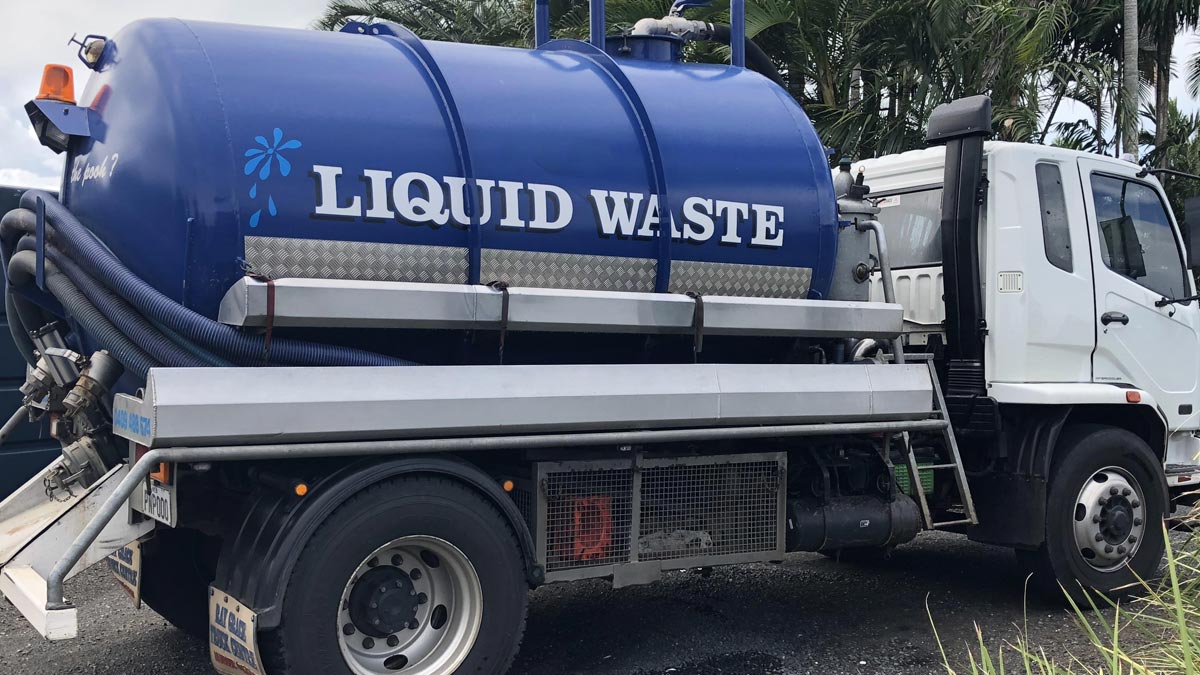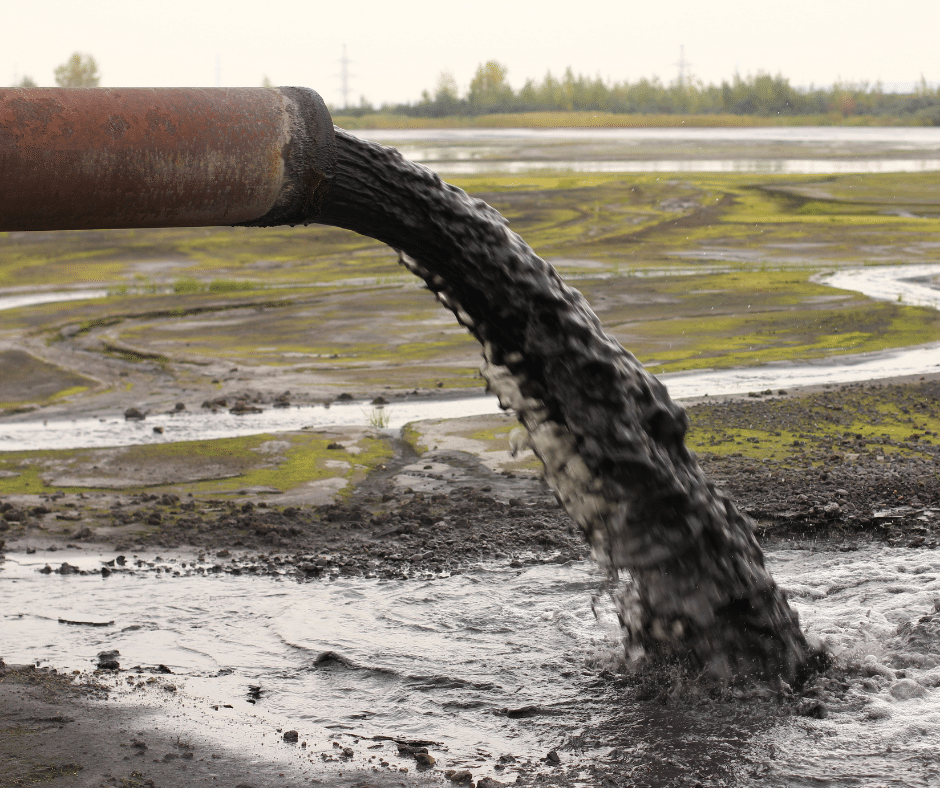Ingenious Industrial Wastewater Treatment Solutions: Safeguarding the Atmosphere
Ingenious Industrial Wastewater Treatment Solutions: Safeguarding the Atmosphere
Blog Article
Understanding the Comprehensive Process of Liquid Waste Disposal: Finest Practices and Environmental Impact Factors To Consider
The monitoring of fluid waste disposal is a diverse concern that needs a thorough understanding of numerous finest methods and their linked environmental influences. From the kinds of liquid waste generated to the approaches utilized for collection, therapy, and final disposal, each action plays a vital role in protecting ecological communities and public wellness.
Sorts Of Fluid Waste
Comprehending the different sorts of liquid waste is important for reliable management and disposal methods. Liquid waste can be extensively categorized right into a number of types, each needing one-of-a-kind handling and therapy methods.
Industrial fluid waste frequently contains harmful products, including hefty metals, solvents, and chemicals, created throughout producing procedures. These wastes require rigorous governing conformity to shield human wellness and the setting. Residential liquid waste mostly describes wastewater created from families, consisting of sewage and greywater, which, although much less harmful, can still pose substantial dangers if improperly taken care of.
Agricultural fluid waste, consisting of runoff from ranches, often has fertilizers and chemicals that can bring about ecological destruction otherwise dealt with properly. Medical liquid waste, produced from healthcare centers, consists of contaminated fluids such as bodily liquids and chemicals, needing specialized disposal techniques to protect against infection and environmental contamination.
Finally, oil and grease waste, usually generated by dining establishments and automobile markets, can cause serious obstructions in drain systems if not handled properly. Understanding these classifications assists in targeted strategies for treatment, compliance with laws, and effective disposal methods, eventually advertising ecological sustainability and public wellness security.

Collection Techniques
Reliable collection methods are vital for the appropriate monitoring of fluid waste, guaranteeing that it is gathered securely and efficiently before treatment or disposal. Different strategies are utilized relying on the kind of liquid waste produced, the quantity, and the specific attributes of the waste.
One common method is the use of specialized collection containers or sumps, which are developed to record fluid waste at the resource. These systems commonly include pumps that facilitate the transfer of waste to bigger storage containers or treatment facilities. In addition, mobile collection units equipped with vacuum modern technology are utilized in scenarios where waste is created periodically or in hard-to-reach places.
For commercial settings, closed-loop systems can successfully lessen spills and leaks, permitting the healing and reuse of fluid waste. It is also important to train personnel on correct collection methods to minimize threats connected with dangerous materials.
Moreover, applying routine upkeep schedules for collection equipment makes certain ideal efficiency and safety. The combination of sophisticated surveillance systems can boost collection effectiveness by offering real-time information on waste levels and prospective risks. Overall, efficient collection approaches are fundamental to sustainable liquid waste management methods.
Treatment Processes
Treatment processes play a vital duty in the monitoring of fluid waste, changing possibly unsafe products into multiple-use resources or secure effluents - liquid waste disposal. These processes can be broadly categorized into physical, chemical, and organic methods, each customized to resolve particular contaminants existing in the waste stream
Physical therapy methods, such as sedimentation and filtering, job by eliminating put on hold solids and particle issue. These techniques are typically the primary step in the treatment chain, efficiently minimizing the lots on succeeding processes. Chemical treatments include the usage of reagents to reduce the effects of damaging materials, precipitate hefty steels, or oxidize organic contaminants, thus enhancing the safety and security of the effluent.
Biological treatment procedures, consisting of activated sludge systems and anaerobic digestion, profit from the all-natural capabilities of microorganisms to degrade raw material. These approaches are especially efficient for wastewater including naturally degradable toxins. Advanced therapy technologies, such as membrane purification and advanced oxidation procedures, are increasingly utilized to achieve higher levels of purification.
Including a combination of these treatment approaches not just guarantees compliance with regulatory standards but also promotes ecological sustainability by recovering beneficial sources from fluid waste.
Disposal Options
How can organizations make certain the safe and accountable disposal of liquid waste? Reliable disposal alternatives are important for safeguarding public wellness and the setting. The key techniques consist of land disposal, incineration, and therapy followed by discharge into community wastewater systems.
Land disposal includes the mindful containment of fluid waste in designated land fills, making certain that it does not seep into surrounding dirt or water. Incineration, on the other hand, topics fluid waste to heats, converting it into ash and gases, which need correct purification to lessen emissions. This technique is ideal for contaminateds materials that can not be dealt with through conventional means.
In situations where liquid waste can be treated, companies may choose chemical or organic treatment processes to neutralize unsafe parts before discharging the treated effluent right into community systems. This path generally lines up with regulative requirements, ensuring that the effluent meets security criteria.
Eventually, companies should carry out detailed evaluations of each disposal alternative to establish its stability, considering factors such as waste make-up, regulatory conformity, and potential dangers to health and wellness and the setting. By choosing ideal disposal approaches, services can add to a liable waste management method.
Environmental Impact
The environmental influence of fluid waste disposal is a crucial consideration for organizations looking for to lessen their ecological footprint. Improper disposal techniques can lead to significant contamination of water sources, dirt deterioration, and unfavorable effects on local ecological communities. For example, harmful fluids can seep right into groundwater, positioning threats to alcohol consumption water materials and marine life. Additionally, the discharge of without treatment or inadequately treated redirected here waste into surface area waters can go right here lead to eutrophication, resulting in oxygen depletion and the subsequent death of fish and other microorganisms.

To reduce these effects, companies need to take on best techniques such as applying strenuous waste therapy procedures, advertising recycling and reuse, and sticking to regulative standards. By taking a positive approach to fluid waste administration, entities can dramatically reduce their ecological footprint while supporting lasting development goals. Inevitably, an extensive understanding of the environmental impacts associated with liquid waste disposal is necessary for informed decision-making and accountable stewardship of natural deposits.
Final Thought
Effective administration of fluid waste is critical for securing environmental stability and public health and wellness. Eventually, an extensive understanding of liquid waste disposal not just reduces environmental impacts but likewise fosters a dedication to accountable resource administration and environmental stewardship.
The management of fluid waste disposal is a diverse concern that needs a complete understanding of various best practices and their associated environmental influences. From the types of liquid waste created to the methods utilized for collection, treatment, and last disposal, each action plays an essential role in securing ecological communities and public wellness.The environmental impact of liquid waste disposal is a vital factor to consider for companies looking for to lessen their environmental impact. Ultimately, a detailed understanding of the environmental effects linked with liquid waste disposal is necessary for educated navigate to these guys decision-making and responsible stewardship of all-natural sources.
Eventually, a comprehensive understanding of fluid waste disposal not only mitigates ecological effects yet likewise fosters a commitment to liable source administration and environmental stewardship.
Report this page